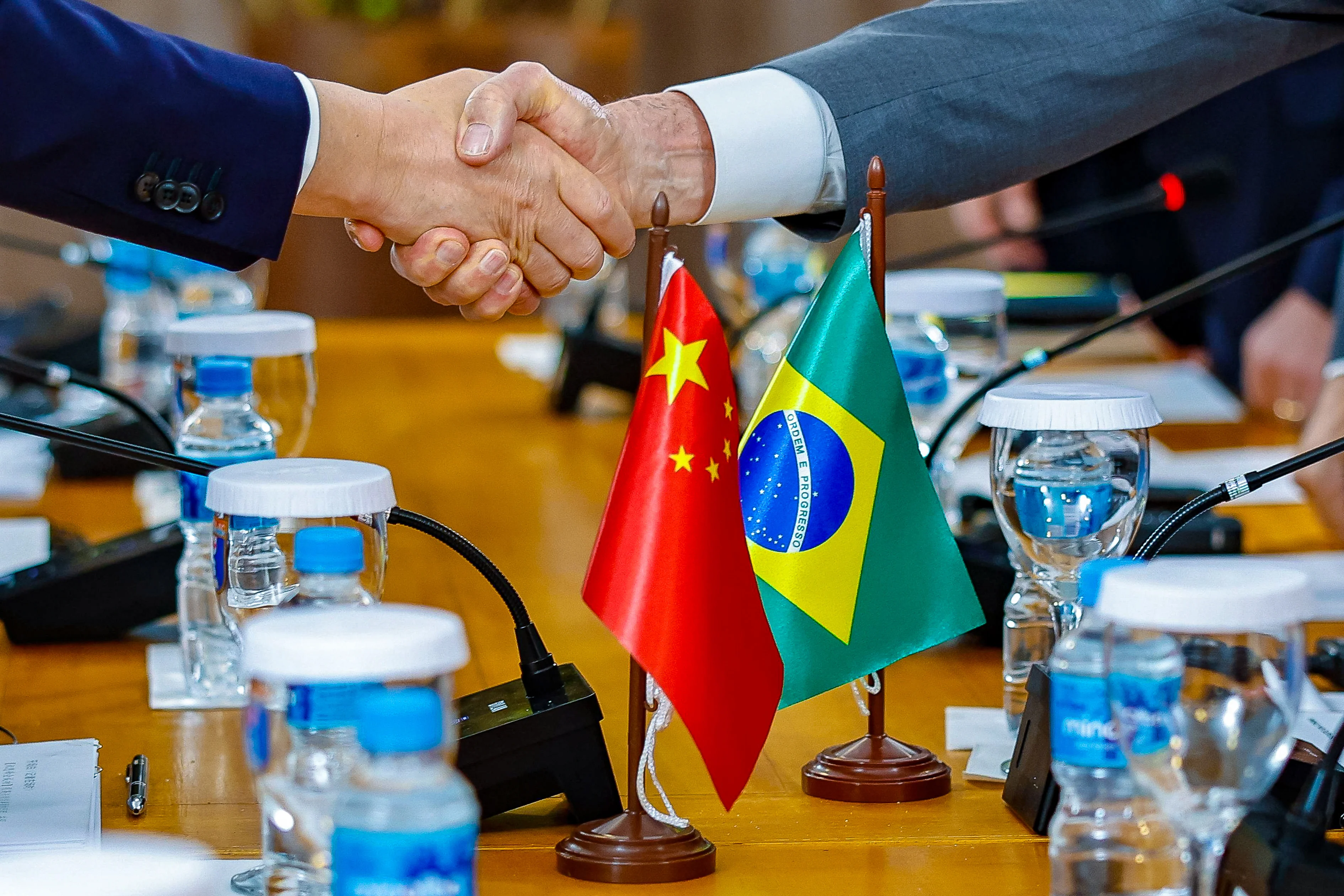By Hayley Wong
Chinese Premier Li Qiang has lauded his country’s growing ties with Brazil as at their “best in history”, as both nations brace for a battle with the US over trade and the global order.
Meeting Brazilian President Luiz Inácio Lula da Silva for talks on Saturday ahead of the Brics summit in Rio de Janeiro, Li said the two sides were “working together to build a more just world”.
“The two sides are working together to build a China-Brazil community of shared future in a more just world and a more sustainable planet,” the Chinese foreign ministry quoted Li as saying.
The Chinese premier is in Rio de Janeiro for the annual two-day summit of the Brics bloc, an emerging economies group of which China and Brazil are founding members.
The bloc takes its name from the initials of early members – Brazil, Russia, India, China, and South Africa – and has expanded to include Egypt, the United Arab Emirates, Ethiopia, Indonesia, and Iran.
The summit, which gets under way on Sunday, is taking place at a critical moment for the international community, with a 90-day suspension of US President Donald Trump’s tariffs set to expire on Wednesday.
The tariffs are set against a backdrop of growing strategic competition between China and the United States and efforts within the Global South to have a greater say over the international governance system.
Without referring directly to the US on Saturday, Li said in his meeting with Lula that China and Brazil were both defenders of multilateralism and free trade.
“China is willing to strengthen communication and coordination with Brazil in multilateral mechanisms such as the United Nations, Brics, and the Group of 20,” the foreign ministry quoted Li as saying.
Li also pledged that China would work with Brazil to “unite the vast number of developing countries, promote inclusive economic globalisation and equal and orderly world multipolarisation, and inject more stability and certainty into the world”.
The focus on multilateralism echoed Lula’s meeting in May with Chinese President Xi Jinping in Beijing.
In those talks, Xi and Lula jointly called for a “more just world” and to “safeguard multilateralism”, saying “there are no winners in tariff or trade wars, and that protectionism should not be the answer to current challenges”.
This is the first time Xi will not attend the Brics summit. Li will lead the Chinese delegation, as he did during the G20 summit in India in 2023 – the only time Xi has been absent from that event.
The two countries have tightened ties in recent years, with Beijing increasing agricultural imports from South American nations to reduce its reliance on the US, cementing China’s decade-plus status as Brazil’s top trading partner.
In their meeting on Saturday, Li said China and Brazil should “consolidate and deepen” cooperation in a range of areas under the Belt and Road Initiative framework – including trade, infrastructure, and technology – to jointly improve its implementation.
Brazil is not formally a member of China’s flagship infrastructure and connectivity project, but it agreed on a cooperation plan in 2024 to synergise national policies with the belt and road.
During the meeting, the two countries “announced the successful conclusion of negotiations” for a memorandum of understanding on further efforts to align their national development programmes.
They also finished talks on an additional protocol for the joint development of the CBERS-5 geostationary meteorological satellite, which aims to provide data for weather forecasting and disaster monitoring.
The two countries signed an agreement last June to jointly build the satellite focused on Brazil.
Li and Lula also formalised two agreements during their meeting: one on financial strategic cooperation and the other on setting up a China-Brazil centre for artificial intelligence application.
The agreements were among the dozens of deals signed between Lula and Xi in China in May.
The leaders also agreed to expand currency swaps, technology transfer, and space data sharing.
